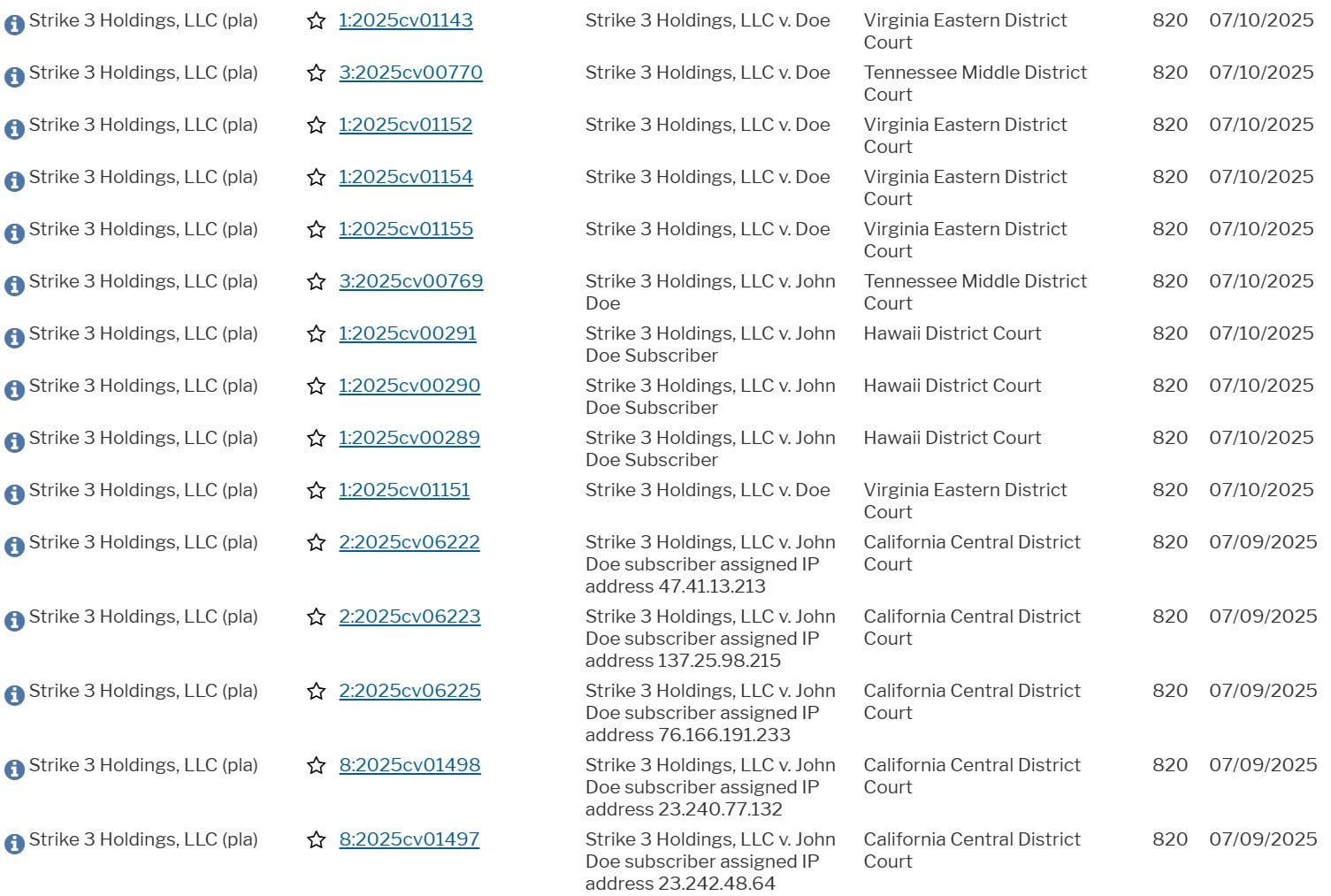-
To
chevron_right
Lawsuits Continue to Put U.S. BitTorrent Pirates in a Financial Hurt Locker
news.movim.eu / TorrentFreak • 20 July • 3 minutes
 Not long after winning the Oscar for Best Picture in 2010, the makers of the war action thriller ‘The Hurt Locker’ set their eyes on their next prize.
Not long after winning the Oscar for Best Picture in 2010, the makers of the war action thriller ‘The Hurt Locker’ set their eyes on their next prize.
With a then-novel legal scheme, they planned to sue tens of thousands of Americans, who shared pirated copies of their film via BitTorrent, in a single lawsuit.
“We’re creating a revenue stream and monetizing the equivalent of an alternative distribution channel,” lawyer Jeffrey Weaver said at the time.
These types of business models, where lawyers and anti-piracy outfits also reap the financial benefits, were already well-known in the UK and Germany, but the United States opened the doors to millions of new targets.
Fifteen years later, these lawsuits are still prevalent, but the playing field has changed. Filing lawsuits against hundreds or thousands of defendants at once was ruled a no-go . This made these legal campaigns substantially more expensive, as every complaint comes with a filing fee and paperwork.
At the same time, some judges were showing increasing reluctance to take on this type of case. And with a ruling that an IP address alone is insufficient evidence, nearly all rights holders gave up on the practice.
Strike 3’s Unrelenting Anti-Piracy Campaign
Strike 3 Holdings is the only prolific litigant in BitTorrent piracy cases today. Known for brands including ‘Milfy,’ ‘Tushy,’ and ‘Vixen,’ the adult entertainment company isn’t scaling down either.
Thus far this year, the company has filed 2,277 lawsuits in U.S. courts, putting the firm on track to beat last year’s record of more than 3,900 lawsuits filed overall. All of these cases target IP addresses observed in public BitTorrent swarms, allegedly sharing adult videos.

Once a complaint is filed, Strike 3 obtains a subpoena through which it can compel the corresponding Internet provider to share the personal details of the account holder. This person can then be added as a named defendant in the case and summoned to appear in court.

These types of lawsuits seldom make it to trial. Strike 3 often reaches out to the defendant with a settlement offer and if both parties agree, that effectively ends the case. Lawsuits can also be dismissed for other reasons which are typically not made public. And in rare instances, defendants can claim a victory of sorts.
A Pirate’s Catch 22
Whether defendants are innocent or not, these cases typically have financial implications. Some defendants opt to proceed pro se , defending themselves; legal representation isn’t cheap, especially if many hours are spent on the case, let alone a full trial.
This leads to a catch-22 situation where defendants have to invest thousands of dollars to prove their innocence, without a guarantee of success or financial compensation. Ironically, it is often cheaper to settle the case, even for someone who did nothing wrong.
We are not lawyers, and the above is not legal advice, but it illustrates the conundrum some people find themselves in. For those defendants who really are innocent, there’s no easy way out. That’s simply how the system works.
Given this backdrop, some defendants choose to ignore a lawsuit completely, hoping that it will go away. That may be understandable, but it is arguably the worst option of all. And typically the most costly too.
Ignoring a Lawsuit Can Be a Costly Mistake
Most Strike 3 cases are dismissed, often after a settlement, but default judgments are also common. When defendants fail to respond to a lawsuit, the plaintiff’s arguments can be taken as written and with no defense, the alleged pirate literally loses by default.
We don’t report on most of these judgments because they have little news value in isolation. However, damages awards can be substantial and in the bigger picture, the numbers quickly add up.
Earlier this year, we highlighted three defendants who were ordered to pay $97,500, $86,250 and $26,250 respectively. But there are many more.
A quick glance at recent records reveals a $24,000 award for damages against a defendant in Texas last month. Strike 3 requested a $51,750 damages award at a California federal court last week, against a defendant who alleged shared 96 videos. And with thousands of cases still in the pipeline, these lawsuits are unlikely to end anytime soon.
For anyone involved in one of these cases, innocent or not, the defaults are a reminder that ignoring legal paperwork can be a costly mistake. And if defendants are innocent, history has shown that it can be worth putting up a serious defense. But of course, that will likely mean a substantial upfront legal bill.
From: TF , for the latest news on copyright battles, piracy and more.
